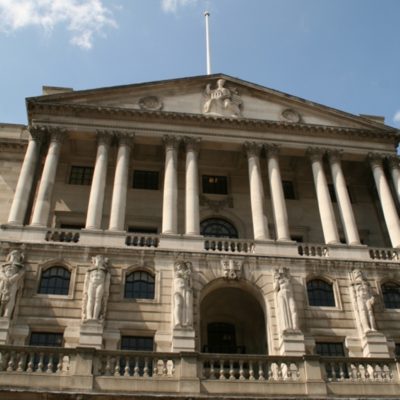The Monetary Policy Committee (MPC) of the Bank of England has this lunchtime announced that it is increasing interest rates by 0.5% to 1.75%. This is the biggest rise in interest rates for 27 years.
At its meeting on 3 August 2022, the MPC voted by a majority of 8–1 to increase Bank Rate by 0.5 percentage points. One member preferred to increase Bank Rate by 0.25 percentage points, to 1.5%.
The decision comes after inflation hits a 40-year high, with inflation now expected to peak at 13% in October. Inflationary pressures continue with a near doubling in wholesale gas prices since May, owing to Russia’s restriction of gas supplies to Europe and the risk of further curbs.
The impact of today’s announcement will impact people in different ways. Those paying typical mortgages, for example, will have to pay about £52 more per month. Those on standard variable rate mortgages will see a £59 increase. Those with personal loans, student loans and credit cards will similarly face increased costs.


Before December 2021, tracker mortgage customers paid about £167 less than what they will now, and variable mortgage holders about £132 less.
Today’s decision has faced a mixed response.
TUC head of economics Kate Bell said, “Working people need an approach to inflation that protects jobs and that helps pay keep up with prices”. Continuing she said, “A rate rise does nothing about the current causes of inflation – global energy, commodity and food prices. It will only add to our problems, making a recession very likely and putting lots of people’s jobs at risk.
By contrast, Kitty Ussher, Chief Economist of the Institute of Directors, commented, “We welcome this decisive action by the Bank of England. Concern about inflation is causing firms to hesitate before committing to essential long-term investment”.
Countries around the world are also facing challenges with inflation, leading to similar rises interest rates. The US central bank, the Federal Reserve, has increased rates by 0.75% in recent months, taking US interest rates to 2.5%.
In Europe, the European Central Bank has recently raised rates for the first time in over 11 years.
The approach to tackling inflation is currently centre stage in the Conservative leadership battle. Liz Truss and Rishi Sunak have different approaches on how to deal with the economic crisis. Truss is encouraging drastic tax cuts, something which Sunak argues will only further inflation and put more pressure on banks to increase interest even more.












